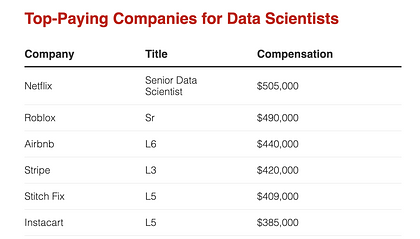RNG Technical Support Engineer (L2)
ARRISE powers Pragmatic Play, a leading supplier of player-favourite content to the iGaming industry.
We are a software development and services company delivering end-to-end digital solutions. Headquartered in Gibraltar with offices around the world, including Malta, Romania, India, Canada and Bulgaria, we are a global team of over 4,000 talented individuals with decades of experience across multiple industries and professions. Together, we form a cross-functional powerhouse that is driven to deliver.
This role is with the ARRISE group powering Pragmatic Play.
RNG Technical Support Engineer (L2) is primarily responsible for providing excellent customer service and technical assistance to Operators and Account Managers. They troubleshoot and resolve technical issues related to the Product issues (bugs, reports issues, game issues, etc.). The primary goal of the Technical Support Engineer is to ensure customer satisfaction and minimize downtime by providing effective solutions. RNG Technical Support Engineer reports to the Support Shift Lead during the immediate shift and Support Team Lead directly.
Primary responsibilities:
- Respond to customer inquiries and support requests promptly and professionally.
- Identify, troubleshoot, and resolve technical issues faced by Operators or their clients.
- Provide step-by-step guidance and instructions to customers to resolve technical problems.
- Collaborate with cross-functional teams, such as developers or product managers, to escalate and resolve complex technical issues.
- Document and track customer interactions, including issues, resolutions, and follow-up actions, using a ticketing system or CRM software.
- Conduct research and gather information to provide accurate and up-to-date solutions to customers.
- Keep up to date with the latest trends, technologies, and updates related to the supported products or services.
- Assist in product testing, bug tracking, and providing feedback to the development team.
- Help Support peers with day-to-day tasks and professional development by sharing knowledge.
- RNG Technical Support Engineer also performs other duties as they deem necessary in the execution of their duties or duties as delegated by the Support Manager, Head of Support, or the Employer.
Proficiency requirements:
- Bachelor's degree in Computer Science, Information Technology, or a related field (or equivalent work experience).
- Proven experience in technical support, customer service, or a related role.
- Strong problem-solving and analytical skills with the ability to diagnose and resolve technical issues.
- Excellent communication skills, both verbal and written, with the ability to explain technical concepts to non-technical individuals.
- Proficiency in using ticketing systems, CRM software, and other support tools.
- Familiarity with hardware, software, operating systems, and networking concepts.
- Basic programming or scripting knowledge is a plus.
- Ability to work independently and as part of a team in a fast-paced environment.
- Strong time management and organizational skills with the ability to prioritize tasks effectively.
- Customer-oriented mindset with a focus on providing exceptional service and satisfaction.
- English level Intermediate or higher
Hard skills:
Monitoring skills:
- Familiarity with monitoring tools such as Grafana, Kibana, Zabbix, Prometheus, and Icinga is essential. It is critical to understand how these tools work and how to configure them to monitor various aspects of IT systems.
- Would be a plus to know key performance indicators (KPIs) and metrics for various IT systems (e.g., servers, databases, applications, networks). Understanding how to set thresholds and alerts for these metrics is necessary to monitor the health and performance of IT systems.
- Proficiency in log analysis using tools such as ELK (Elasticsearch, Logstash, Kibana), Graylog, or Splunk is valuable. Searching, filtering, and analysing log data to identify issues and trends is crucial for effective monitoring.
- Basic knowledge of incident management processes and tools such as ITIL, Jira, or ServiceNow is important. Understanding how to handle incidents, including incident identification, prioritization, escalation, and resolution, is crucial to ensure timely responses to issues.
Database skills:
- Proficiency in working with RDBMS such as Oracle, MySQL, PostgreSQL, Microsoft SQL Server, or SQLite. Understanding concepts like data modeling, tables, SQL querying, transactions, and indexing is essential.
- A strong understanding of SQL is crucial for working with relational databases. Proficiency in writing SQL queries, creating and modifying database schemas, and performing data manipulation operations (e.g., SELECT, INSERT, UPDATE, DELETE) is necessary.
- Would be a plus to know NoSQL Databases: Familiarity with NoSQL databases like MongoDB, Redis, or Elasticsearch. Understanding the different data models (e.g., document-oriented, key-value, columnar) and how to interact with these databases using their respective APIs or query languages.
- Basic knowledge of database security principles and best practices, including securing database access, encrypting sensitive data, implementing user roles and permissions, and auditing database activity.
- Understanding data governance principles, data quality management, and compliance requirements (e.g., GDPR, HIPAA) to ensure data integrity, privacy, and regulatory compliance.
API skills:
- Understanding the principles of good API design is essential. Skills in designing RESTful APIs, including defining resource endpoints, HTTP methods, request/response formats (e.g., JSON, XML).
- Knowledge of API security practices, including authentication mechanisms like OAuth 2.0 or JSON Web Tokens (JWT), securing API endpoints using SSL/TLS, handling authorization and access control, and preventing common security vulnerabilities (e.g., cross-site scripting, injection attacks).
- Skills in testing APIs to ensure their functionality, reliability, and performance. Proficiency in using tools like Postman, and Newman, validating responses, and handling edge cases.
Network skills:
- Understanding network topologies, protocols, and components is essential for designing scalable, secure, and efficient networks. This includes knowledge of concepts like VLANs, subnets, routing, and network segmentation.
- Familiarity with network protocols such as TCP/IP, DNS, DHCP, SNMP, ICMP, and routing protocols (e.g., OSPF, BGP) is crucial. Understanding how these protocols function and interact enables effective network troubleshooting and optimization.
- Proficiency in configuring network devices like routers, switches, firewalls, and access points is important. This includes setting up IP addressing, configuring VLANs, access control lists (ACLs), and implementing security measures.
- The ability to identify and resolve network issues is critical. Skills in packet analysis using tools like Wireshark, knowledge of common network problems, and understanding of network diagnostic tools like ping, traceroute, and netstat are valuable.
- Knowledge of network security principles and practices is vital to protect networks from unauthorized access, threats, and vulnerabilities. This includes concepts like firewall configuration, VPNs, intrusion detection systems (IDS), and secure network design.
We offer:
- Being a part of a successful international team focused on excellence in product development
- Opportunity to work whether in an office or remote
- High-level compensation and regular performance-based salary and career development reviews
- Paid vacation and sick leaves
- Individual health insurance coverage
- Gym membership
- Referral program for employees





.png)
